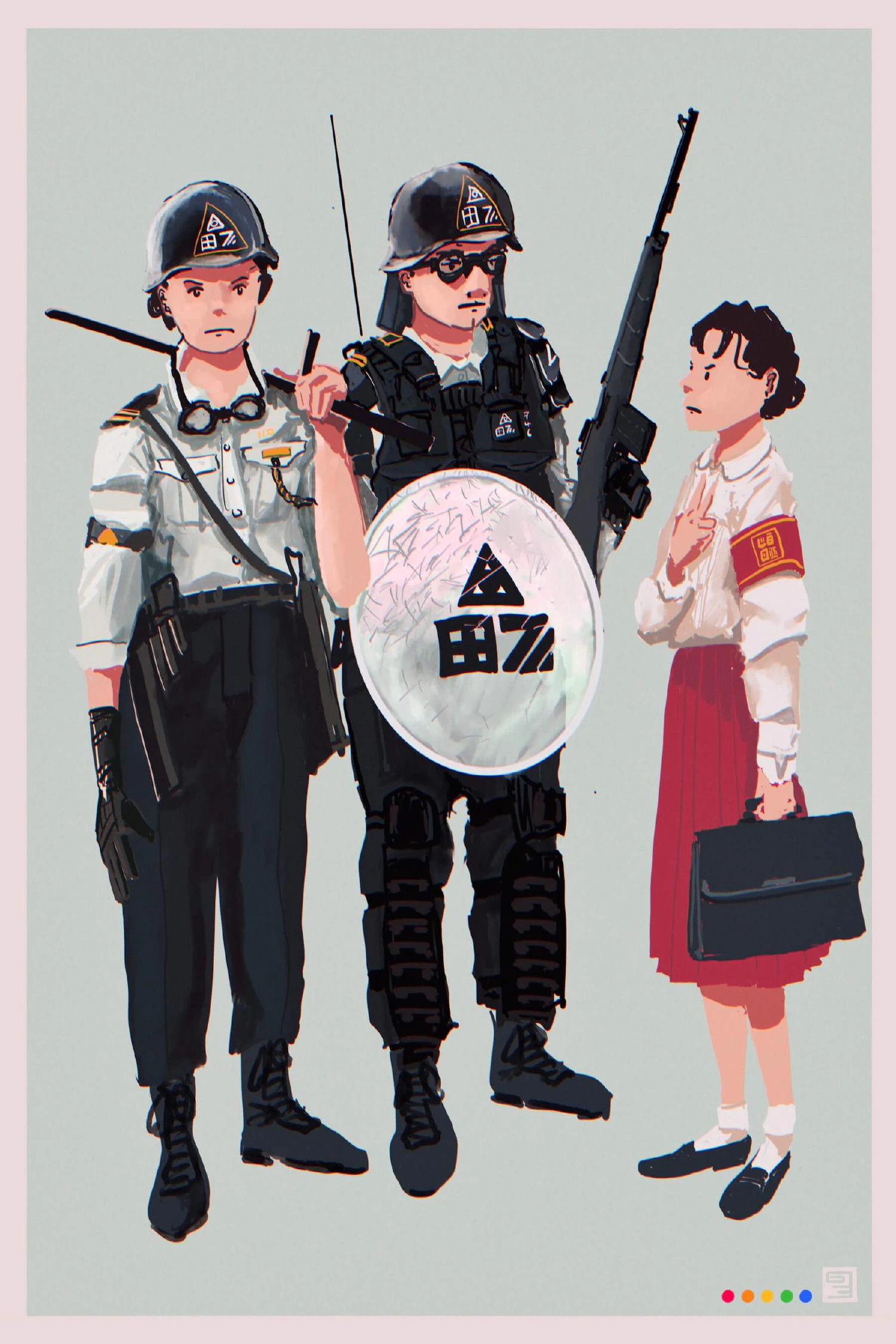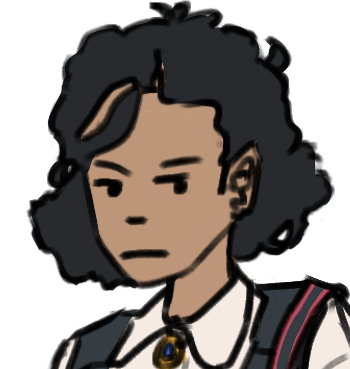NEW Story: Sunday Morning
Compor, Vekllei's Special Police

Where Tzipora lived in Lola, most people remained of the working class well into the utopian period. Despite their equitable access to the fruits of the country, their housing was poorer and their problems generational. Alcoholism was very common; many of them were veterans of the War in Taiwan. Others were in great pain from their early work in the postwar years, their bodies broken by the demons of manual labour.
A year after Tzipora arrived, the conviction of a Polish man for two murders sparked protests in Lola along ethnic lines. Protests were very common in Vekllei. In the postwar years, the grievances were often prejudiced, and intensified by the millions of immigrants who arrived in the renewed country, one which was reestablishing itself as a place of dignity for dispossessed people.
Tzipora did not like the protests because they reminded her of where she came from. Per the echoes of the past, she too found old wartime anxiety and despair resurfacing. She was feeling what we now call battle fatigue, or the neurosis of violence — but she did not look like a soldier, and so she was not treated for it.
And that sort of thing brought out the monster in Tzipora. She grappled with her own revulsion towards the anti-immigrant protestors. It upset her hearing the protests from her home. In her mind, she would like to see them shot where they stood. How short-sighted was tolerance in abstract — why did no one seem to recognise that people needed management; they all needed management. They needed management from their own worst instincts! She had seen the wickedness of people, and now it had followed her here!
The protest had fizzled out by sundown. Baron watched it from the roof with a drink, apparently unconcerned. Tzipora found herself shaking with anger and had to return inside.
The following day, she passed by some riot officers on the way to school. She signed at them in her new Potenne to say they were doing good work. That was all she said. In her head, she was thinking get them! Go and arrest them all. How can you just stand there and watch?
The moment would pass, and the thoughts would settle. She was not bloodthirsty in her heart. But that side of her threatened to surface from time to time. There was some currency to the thought that she had died overseas, and she was witnessing a life unlived in the twilight of death. There is a truthfulness to anger. That side of her felt much more ‘real’ for a long time after. That problem remained unresolved throughout most of her life.
The Cosmpasnie Fedecenoayan Porits, or Compor (lit. National Police Companies), are the special paramilitary and riot control wing of the National Police, or the Police of the Parliament. Most police in Vekllei are stationed locally, including the National Police. The Companies, however, are mobile — they move to meet riots, participate in counter-terrorism and counter-espionage operations, and support the Royal Vekllei Armed Forces in wartime.
Depicted here is a riot officer in “silks,” the term for the Compor uniform including revolver and long truncheon. Besides her is an armoured officer of Special Tactics, which responds to serious threats of violence. The iconic Compor shield is displayed here for documentary purposes. Special Tactics carry powerful radios designed to work in all environments.
Vekllei sees protests regularly for all sorts of things, including ongoing economic grievances, cultural tension, or even more commonly political events designed to pressure government. All such occasions are met with the Compor, who are feared and reviled by a country otherwise only used to local policing.
